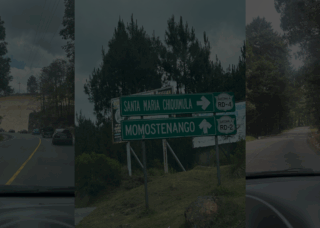Revenge porn is not just a violation of trust; it’s a crime that destroys lives. With the digital world at our fingertips, the threat is more prevalent than ever. This is a serious issue and a crime in most of the United States.
We at Privin Network take action against preventing revenge porn seriously. Many of our team members come from law enforcement backgrounds. We have seen the damage this type of activity can have on an individual, their families, friends, and careers.
What is Revenge Porn?
Revenge porn is the posting of nude or sexually explicit photos or videos of an individual without their consent. It’s a form of cyberbullying, sexual harassment, and gender-based violence.
In many countries, revenge porn is illegal to post online without the subject’s permission; but that doesn’t mean it won’t happen anyway. Many victims are embarrassed enough to not want to report what happened until it’s too late and there has been damage done in their personal lives as well as professional ones.

Revenge Porn vs. Sextortion
Revenge porn, also known as nonconsensual pornography (NCP), is a form of sexual exploitation. It can be used as blackmail against victims in order to extort money from them. This type of cybercrime can occur when someone sends intimate photos or videos without consent, which are then shared online for the purpose of humiliation. While revenge porn may appear similar to sextortion and extortion, it does not cover all forms of this crime.
Taking Action Against Revenge Porn
As of June 2024, 49 states, the District of Columbia, and two U.S. territories have enacted laws criminalizing the nonconsensual distribution of intimate images, commonly known as “revenge porn.” These laws aim to protect individuals from the unauthorized sharing of explicit content intended to remain private.
- Definition of the Offense: While most states define the offense as the distribution of sexually explicit images or videos without the subject’s consent, the specific language and scope can vary. Some states require that the depicted individual had a reasonable expectation of privacy, while others focus on the lack of consent for distribution.
- Intent to Harm: In certain jurisdictions, proving that the perpetrator intended to cause harm, harassment, or emotional distress is necessary for prosecution. Other states criminalize the act of distribution regardless of intent, emphasizing the violation of privacy inherent in nonconsensual dissemination.
Penalties of the Crime
- Misdemeanor vs. Felony Charges: The classification of the offense varies by state. Some states categorize revenge porn as a misdemeanor, potentially resulting in penalties such as fines and up to one year of imprisonment. Others classify it as a felony, leading to more severe consequences, including longer prison sentences and higher fines.
- Civil Remedies: Beyond criminal penalties, several states provide victims with the option to pursue civil lawsuits against perpetrators. This allows individuals to seek monetary damages for the emotional and reputational harm suffered due to the unauthorized distribution of their intimate images.
Challenges in Enforcement
- Jurisdictional Issues: The digital nature of these offenses often complicates enforcement, especially when images are distributed across state lines or via international platforms. Coordinating between jurisdictions can pose significant challenges for law enforcement agencies.
- Anonymity of Offenders: Perpetrators may use anonymous accounts or sophisticated technologies to conceal their identities, making it difficult for authorities to identify and prosecute them effectively.
If you are being threatened with exposure by someone who has shared intimate photos or videos online, it is crucial to act quickly. Consult with an experienced investigator and attorney who can guide you through the legal process. Even if your state’s laws do not specifically address revenge porn, a legal expert can help you take appropriate action to prevent further harm.
A private investigator (PI) can also be invaluable in such cases, helping gather evidence for legal actions against those attempting to exploit or harm others through nonconsensual sharing of intimate content.
What Does a Private Investigator Do to Help?
A private investigator is a trained individual who can help you gather the evidence you need to prove that someone has been posting revenge porn about you. If necessary, they will work with other law enforcement agencies, such as the police or your local district attorney’s office. Additional steps may include:

1- Locate Where it is Posted & Document Everything
The first step in your case is to find where the photo was posted. Revenge porn has a wide range of distribution platforms, including:
- Social media (Facebook, Instagram, Snapchat)
- Image hosting sites (Imgur)
- File sharing sites (4Shared)
- And more
Once our digital forensic experts have identified where the photo was posted, then you can move on to finding out who posted it and who is behind this revenge porn attempt.
2- Use DMCA Takedown Notices
DMCA takedown notices are a legal way to remove content, and they’re also a type of takedown notice. DMCA takedown notices are used to remove copyrighted material from the internet. You can file DMCA takedown notices with sites like Google and Facebook if you believe that someone is infringing on your copyright by posting stolen images or videos.
3 – Create a Verifiable History of Harassment
We will want to write down everything that has happened since the incident occurred. For example: “On Tuesday morning, I woke up and found out my ex was posting revenge porn on Facebook.”
Try to be as detailed as possible when describing the situation. Include who you spoke with and what they said in response to your request for help. If you have screenshots or recordings of conversations between yourself and others involved; such as friends, family members or employers; this will also help corroborate your story later on if needed.
4 – Investigate Potential Targets
You’re going to need to make sure that the person who is responsible for distributing these images is found and prosecuted. This can be a long process, but it’s important that you don’t give up on this step. You may also want to look into whether or not there are any potential targets, as well as victims.
5 – Present Evidence to Court, Lawyer, or Law Enforcement
Once we have gathered all the evidence in your case, it is time to present it. Depending on what kind of case you’re dealing with, this will vary a bit. The final decision will be up to you, but we can make recommendations if necessary. We want you to have the peace of mind and power to decide the fate of your case.
6 – Help Protect Client’s Identity
We will always protect your identity when possible during this type of case. You have had a serious violation of your trust infringed upon already. You should not be exposed over and over again. That is why we place a high value on open, clear, and transparent communication every step of the way for your benefit.
Finding Hope and Taking Action: You Are Not Alone
You are not alone.
You are not to blame.
And you can take action.
We want you to feel empowered and encouraged and know that you have a voice and options when it comes to your case of revenge porn. Taking action against revenge porn is challenging, but it is a crucial step toward justice and healing. At Privin Network, we provide a safe and supportive environment to guide you through this difficult time.
Revenge porn is a serious violation of trust and privacy. With the help of experienced professionals, you can take back control and begin the process of healing. Contact Privin Network today to discuss how we can help you remove unauthorized content, gather evidence, and hold perpetrators accountable.
FAQs: How a Private Investigator Assists in Revenge Porn Cases
1. What is revenge porn, and how does it differ from sextortion?
Revenge porn involves the nonconsensual sharing of explicit images or videos to harm or embarrass someone. Unlike sextortion, which typically involves threats to release intimate content unless demands are met, revenge porn is primarily about public humiliation and emotional distress.
2. How can a private investigator help in identifying the perpetrator of revenge porn?
A private investigator can trace where the explicit content was posted, identify the platforms used, and gather evidence of the distribution. They employ digital forensics and online research to track down the source and gather information for legal action.
3. What legal actions can be taken against someone posting revenge porn?
Victims can file Digital Millennium Copyright Act (DMCA) takedown notices to remove content from platforms like Google and Facebook. Additionally, many states have laws criminalizing the nonconsensual distribution of intimate images, allowing for misdemeanor or felony charges, and civil lawsuits for damages.
4. How does a private investigator assist in documenting harassment related to revenge porn?
Investigators help victims maintain a detailed record of incidents, including screenshots, dates, and communications with the perpetrator. This documentation is crucial for building a case and can be presented to law enforcement or in court.
5. What steps should a victim take if they are targeted by revenge porn?
Victims should immediately consult with a private investigator and an attorney experienced in cybercrimes. They should avoid engaging with the perpetrator, document all evidence, and seek legal counsel to understand their rights and options for removing content and pursuing justice.






